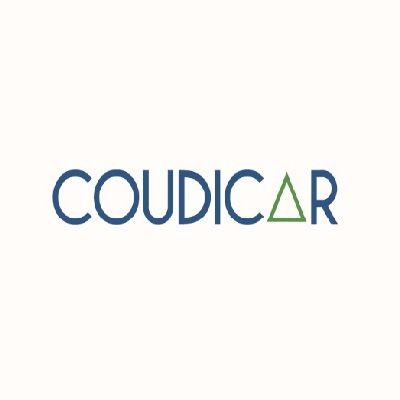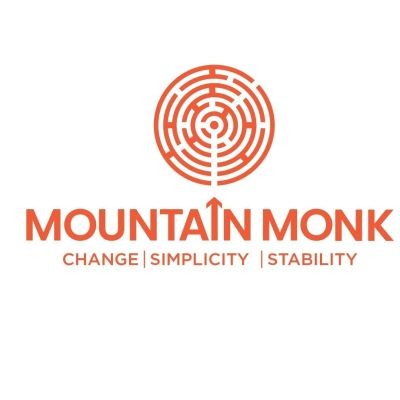New Zealand's healthcare system, renowned for its comprehensive coverage, has long been a topic of discussion among health professionals and policymakers. As the global landscape of medicine evolves, alternative medicine has increasingly come under the spotlight. With an estimated 70% of New Zealanders using some form of alternative medicine, the question of whether it should be publicly funded has become pertinent. In this article, we delve into the potential integration of alternative medicine into New Zealand's public healthcare system, exploring perspectives, case studies, expert opinions, and future implications.
Introduction: The Rising Popularity of Alternative Medicine
Alternative medicine, encompassing practices such as acupuncture, homeopathy, and herbal medicine, has gained traction worldwide. In New Zealand, this trend is no different, with many seeking holistic approaches to complement traditional treatments. Statistics from Stats NZ reveal that the alternative medicine market is growing at an annual rate of 5%, reflecting a significant shift in consumer health preferences.
Yet, the integration of alternative medicine into the public healthcare system is not straightforward. It raises questions about efficacy, cost, and the role of evidence-based medicine. As New Zealand's healthcare system faces mounting pressure with an aging population and budget constraints, the potential inclusion of alternative therapies in public funding warrants a thorough examination.
Expert Insights: What the Professionals Say
To gain a comprehensive understanding, we spoke with Dr. Emily Carter, a prominent health policy analyst in New Zealand. She emphasized the growing interest in alternative medicine but cautioned against its blanket inclusion in the public healthcare system without rigorous evaluation.
"While alternative medicine offers numerous benefits, especially in patient satisfaction and holistic care, it's crucial to ensure these treatments meet evidence-based standards. The healthcare system must prioritize safety and efficacy to protect public health," Dr. Carter stated.
Dr. Carter's perspective underscores the need for a balanced approach, integrating alternative therapies that demonstrate proven outcomes while maintaining the integrity of evidence-based medicine.
Case Study: Norway's Integration of Acupuncture
Norway's approach to integrating acupuncture into its public healthcare system provides valuable insights for New Zealand. In 2015, Norway began funding acupuncture treatments for pain management within certain medical contexts. A study by the Norwegian Institute of public health reported a 30% reduction in pain medication use among patients receiving acupuncture.
This integration was successful due to stringent regulations and a focus on evidence-based practices. New Zealand could adopt a similar model, ensuring that only therapies with proven efficacy are considered for public funding.
Pros and Cons of Integrating Alternative Medicine
Pros:
- Improved Patient Satisfaction: Alternative medicine often addresses physical, emotional, and spiritual needs, enhancing overall patient satisfaction.
- Cost-Effective: Some alternative treatments may reduce the need for expensive pharmaceuticals and procedures.
- Holistic Approach: A focus on prevention and wellness can lead to long-term health improvements.
Cons:
- Regulatory Challenges: Ensuring the quality and safety of alternative therapies can be complex and resource-intensive.
- Variable Efficacy: The effectiveness of alternative treatments can vary widely, and not all are supported by robust scientific evidence.
- Potential for Misuse: Without proper education, patients may opt for alternative treatments over necessary conventional medicine.
Data-Driven Analysis: Public Opinion and Economic Impact
According to a survey conducted by the Ministry of Health in 2023, 65% of New Zealanders support the inclusion of alternative medicine in the public healthcare system, provided it is backed by evidence. This sentiment reflects a growing demand for more personalized and comprehensive healthcare options.
Economically, the integration of alternative medicine could present both opportunities and challenges. On one hand, it could reduce healthcare costs by decreasing dependency on pharmaceuticals. On the other, it could strain the healthcare budget if not properly regulated and monitored.
Contrasting Viewpoints: Should Alternative Medicine Be Funded?
The debate over funding alternative medicine presents polarized views. Proponents argue that public funding would increase accessibility and encourage holistic health practices. Critics, however, express concerns over the efficacy and safety of these treatments without rigorous scientific validation.
Middle Ground: A potential compromise could involve partial funding for specific alternative therapies that have demonstrated efficacy through clinical trials. This approach would ensure patient safety while accommodating public demand for holistic care options.
Common Myths & Mistakes
Myth vs. Reality
Myth: "All alternative medicines are safe because they are natural."
Reality: Natural does not always equate to safe. Some alternative treatments can interact adversely with conventional medications or have side effects. It is essential to consult healthcare professionals before starting any new treatment.
Myth: "Alternative medicine can cure all ailments."
Reality: While alternative medicine can be beneficial for certain conditions, it is not a replacement for conventional medical treatments, especially for serious illnesses.
Biggest Mistakes to Avoid
- Ignoring Scientific Evidence: Ensure that any alternative treatment is supported by credible research and consult with healthcare professionals.
- Overlooking Professional Guidance: Only seek treatments from qualified practitioners to avoid potential health risks.
- Substituting Conventional Medicine: Use alternative medicine as a complement, not a substitute, for evidence-based medical treatments.
Future Trends & Predictions
Looking ahead, the integration of alternative medicine into public healthcare systems globally is likely to continue evolving. A report by Deloitte predicts that by 2030, holistic health approaches will become mainstream, driven by consumer demand and advances in research validating the efficacy of certain treatments.
In New Zealand, the focus will likely shift towards a more patient-centered healthcare model, incorporating alternative therapies that are backed by scientific evidence and align with public health goals.
Conclusion: Balancing Tradition and Innovation
The inclusion of alternative medicine in New Zealand's public healthcare system presents both opportunities and challenges. It requires a careful balance between embracing holistic health practices and ensuring they meet rigorous scientific standards. As the healthcare landscape continues to evolve, ongoing research and dialogue will be crucial in shaping policies that prioritize patient safety and efficacy.
What are your thoughts on this topic? Should alternative medicine be publicly funded in New Zealand? Join the discussion below and share your insights!
People Also Ask (FAQ)
- How does alternative medicine impact healthcare in New Zealand? Alternative medicine offers holistic treatment options, potentially reducing reliance on pharmaceuticals and enhancing patient satisfaction.
- What are the biggest misconceptions about alternative medicine? A common myth is that all natural treatments are safe. However, some can interact with conventional medicines, necessitating professional guidance.
- What are the best strategies for integrating alternative medicine into public healthcare? Experts recommend starting with evidence-backed therapies, establishing regulations, and ensuring practitioner qualifications.
- What upcoming changes in New Zealand could affect alternative medicine? By 2026, policy updates might focus on integrating evidence-based alternative therapies into the healthcare system.
- Who benefits the most from alternative medicine? Alternative medicine benefits patients seeking holistic care, those with chronic conditions unresponsive to conventional treatments, and individuals prioritizing wellness and prevention.
Related Search Queries
- Alternative medicine in New Zealand
- Public healthcare funding NZ
- Holistic health benefits
- Acupuncture coverage NZ
- Integrating alternative treatments
- Efficacy of homeopathy
- Health policy changes NZ
- Evidence-based alternative medicine
- Acupuncture vs. conventional medicine
- Alternative medicine statistics NZ








































ramonwaddell3
3 months ago